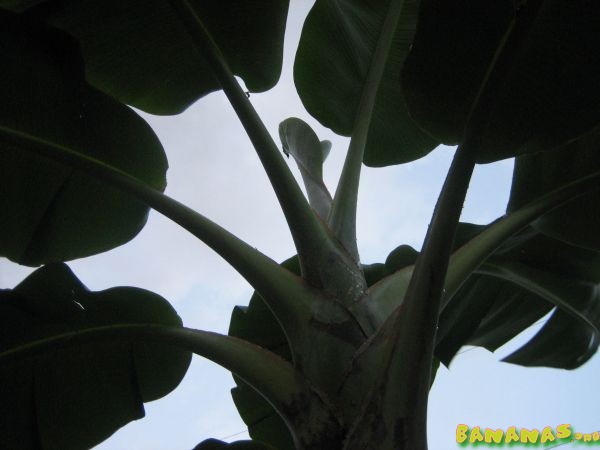Musa Goldfinger
From Bananas Wiki
(diff) ←Older revision | Current revision | Newer revision→ (diff)
Contents |
Cultivar Name
Musa 'fhia-1 goldfinger'
Synonyms
Pictures
(credit ron_mcb)
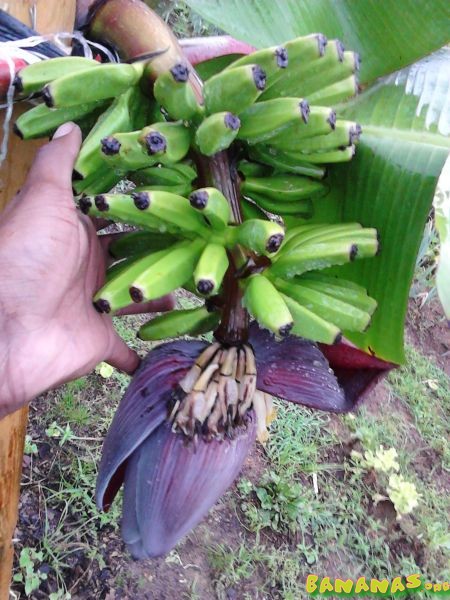
(credit ron_mcb)
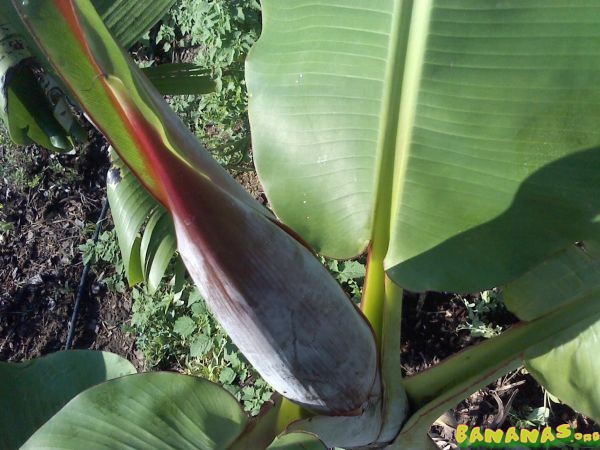
(credit ron_mcb)
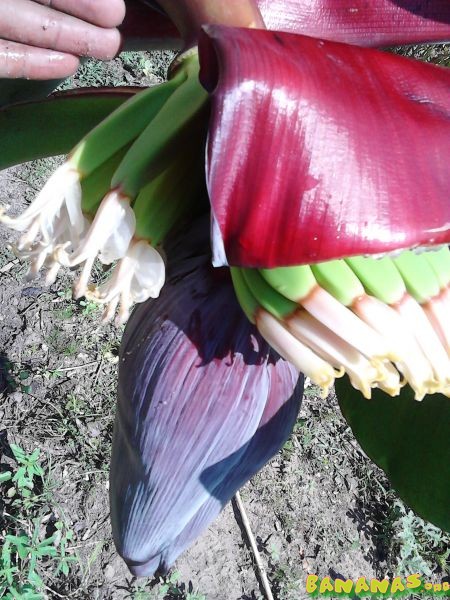
(credit ron_mcb)
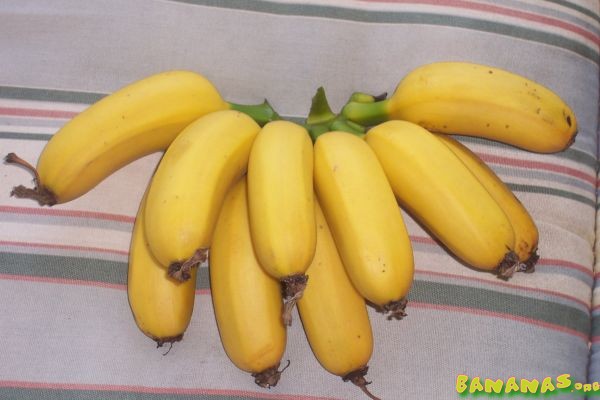
(credit sunfish)
(credit MediaHound)
(credit MediaHound)
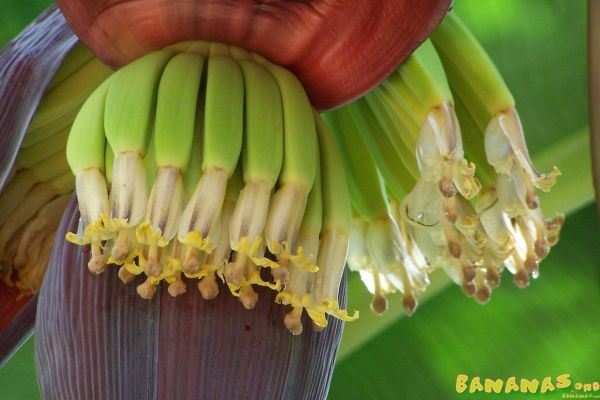
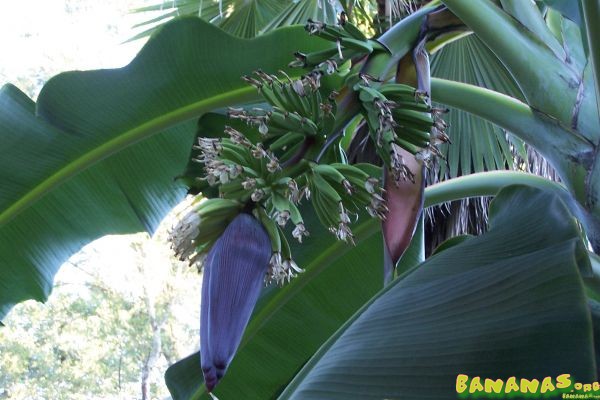
(credit Kenzie_POM)
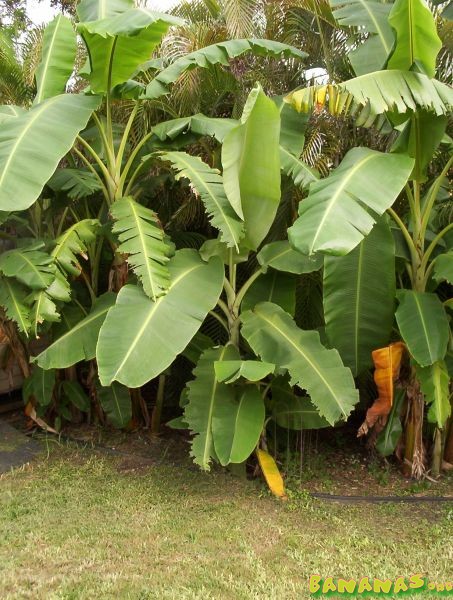
(credit sean)
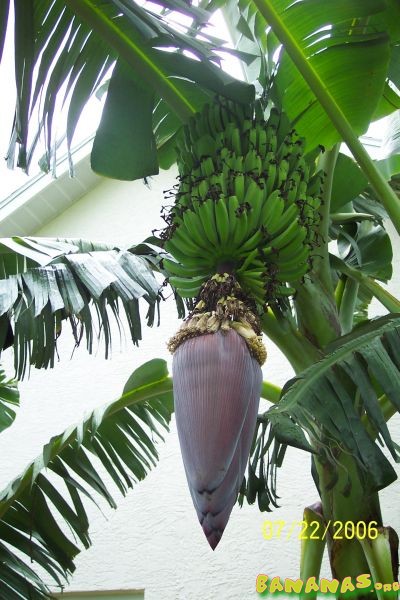
(credit CaptDonI)
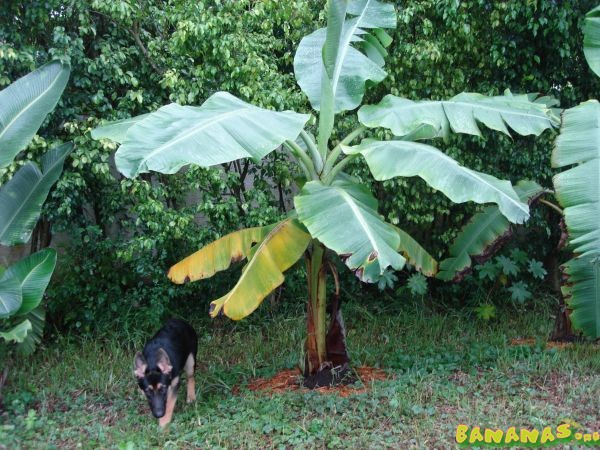
(credit MediaHound)
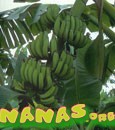
(credit the flying dutchman)

FHIA-1 American Goldfinger(mutant) female flowers. Notice the phenotypic variance in flower color. Credit: Mike Wang

Credit: Mike Wang FHIA-1 American Goldfinger(mutant) male flowers. Notice the elongated "Top" shape of the male inflorescence. Bracts can open up 2-3 at a time with this mutant. The original FHIA-1 male flowers are also top shaped, but it's not as elongated. Male bracts open one at a time with the original FHIA-1 clone. All pictures above showing the male inflorescence are American Goldfinger FHIA-1.
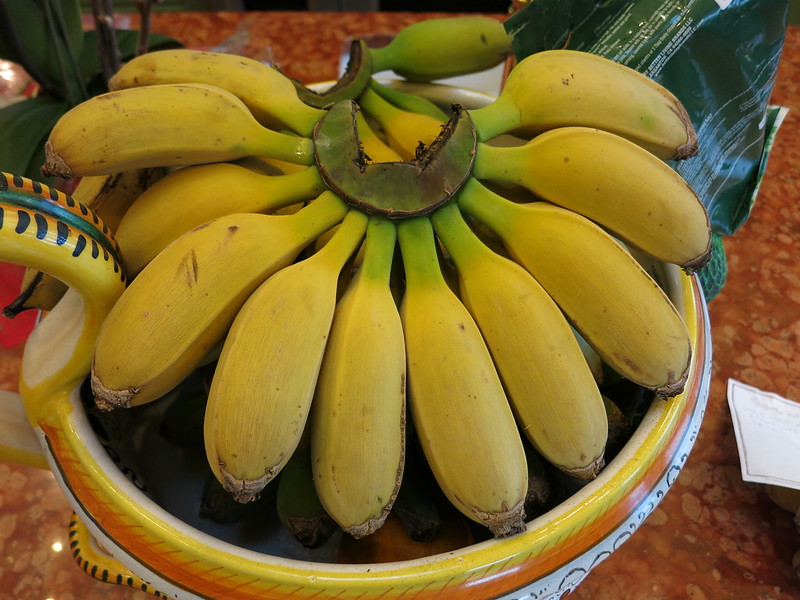
American Goldfinger ripe fruit. Credit: Mike Wang
Description
A recent product of the banana breeding program in Honduras, this cultivar has commercial potential. It has a high wind resistance, some cold tolerance and excellent disease resistance with a strong pseudostem and base. It is an outstanding producer of delicious tasting bananas that are reminiscent of one of its parents(Musa "Dwarf Prata"/"Prata Ana"/ "Dwarf Brazilian"...these are all synonyms). The other parent cultivar is SH3142. It is a rapid growing, easy to grow, mostly green plant. It will grow to about 14 Ft in the tropics or 5-8 Ft in a container. Planted in the ground in California it grows to about 7-12 Ft with stout construction and broad leaves with fruit clusters in the 30-100 Lbs bunches.It is the first product of the banana improvement research project of Fundacion Hondurena de Investigation Agricola. This variety produces superior fruit considered among the tastiest. Its is slightly sub-acid with a excellent apple-flavor, especially when fully ripe. The fruit gets 6-8 inches long or better.
United States Patent PP08983
This new and distinct variety of banana plant has the following unique combination of desirable features:
1. High level of resistance to both the yellow Sigatoka leaf spot disease (Mycosphaerella musicola) and the black Sigatoka leaf spot disease (Mycosphaerella fijiensis).
2. Practical immunity to both races 1 and 4 of Panama disease (Fusarium oxysporum f. sp. cubense).
3. A strong root system which makes it a hardy plant under marginal water and soil conditions.
4. Cold tolerant - plant remains green under cold conditions which cause the "Williams" Cavendish variety to turn a yellowish color. Plant has not frozen to the ground at 27F and will likely tolerate lower temps.
5. Excellent green life of fruit after harvest which renders it suitable for export.
6. Sliced or diced green and ripe fruit does not oxidize to an unsightly brownish color as does the fruit of the Cavendish export clones.
7. Pleasant slightly tart flavor when ripe.
8. Peel of harvested green fruit turns yellow when left to ripen under ambient conditons without ethylene treatment.
Patent Info: http://www.freepatentsonline.com/PP08983.html
- Genetic Group - AAAB
Origin
Honduras
- Date realized in trade -
Usage
Ripe fruit is OK, but well below the flavor quality of a Cavendish.
Fresh, outstanding fruit, and does not brown when cut.
Flowering
- Time To Bloom -
- Time To Harvest -
Cultivation
- Mature Height -
7-12 feet
- Survival Zone -
8-9
- Fruiting Zone -
- Cold Hardiness General -
Cold tolerant
- Cold Hardiness Personal -
27F or lower
- Wind -
High wind resistance
- Sun -
Part to full sun
- Taste Description -
Sub-acid, apple-flavor
- Personal Notes -
- Growth tips -
Known Afflictions
- Pests - Nematodes
- Susceptible Diseases - Banana Bunchy Top Virus (BBTV), Eumusae Leaf Spot, Banana Streak Virus (BSV)
- Resistant Diseases - Panama Disease Races 1, 2, & 4, Black Sigatoka, Yellow Sigatoka, Crown Rot
Research Notes
- Links to useful discussion threads in the forum:
- Typical Price Range -
Members Growing This Banana
External
- Links
- (Links to other useful pages on the web that mention this banana. Example: International Banana Society)
- Sources
http://bio.sophiapublisher.com/html-75-18-mp http://www.promusa.org/tiki-index.php?page=FHIA-01 http://www.ndrs.org.uk/article.php?id=018045


